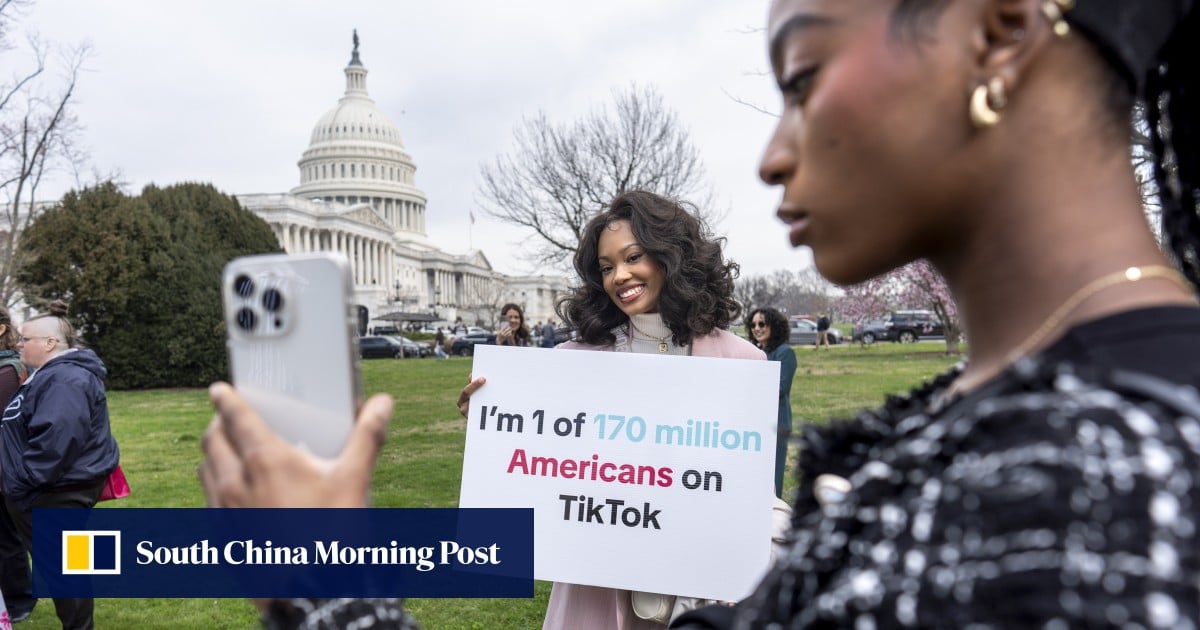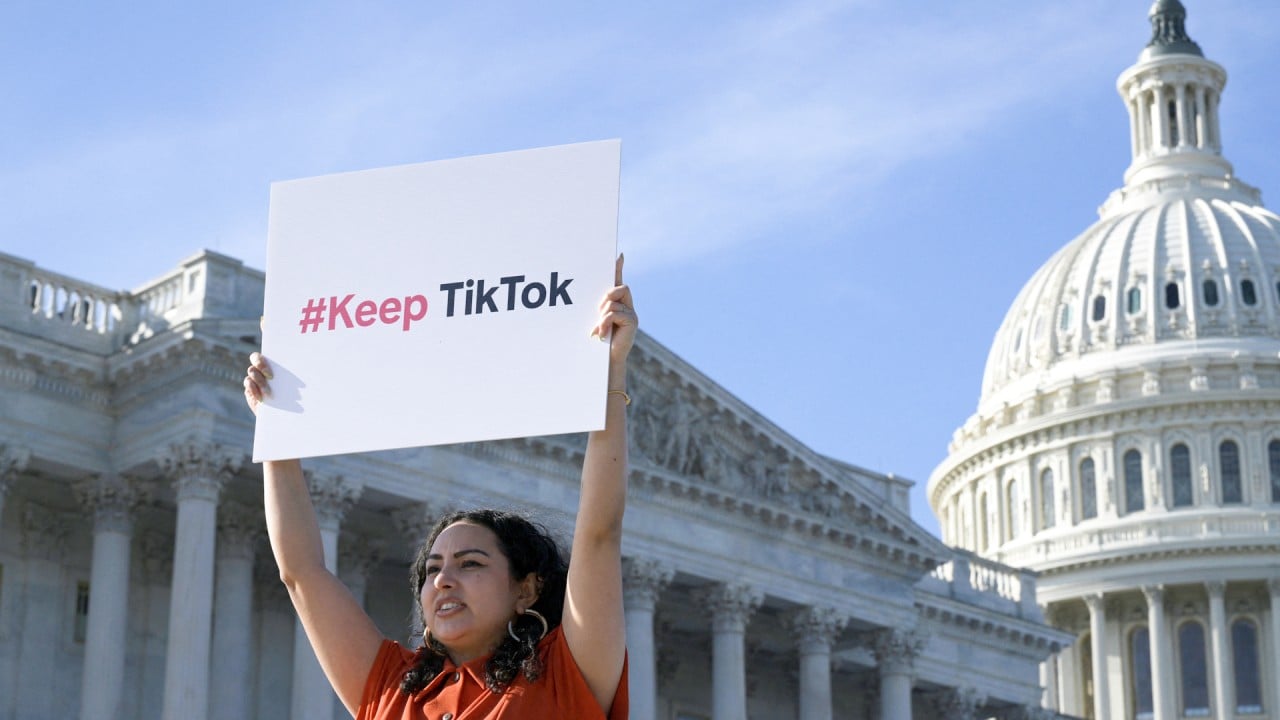Fewer than three in 10 Americans support the bill the US House of Representatives passed earlier this month that would ban TikTok, the short-video sharing app, if its Chinese owner does not divest it, according to a poll released on Friday.
Half of the 2,000 Americans 18 or older that Savanta surveyed opposed the bill while only 28 per cent supported it, according to Savanta, a British-based market research firm behind the poll. Most said they would switch to other social media apps, particularly YouTube and Instagram, adding that “their friends” would continue to use TikTok despite the ban.
“Our research suggests a striking concern from the US public about the ability of lawmakers to deliver and actually implement a ‘TikTok ban’,” said Ethan Granholm, research analyst at Savanta. “Younger people – seen as key to the outcome of the presidential election – are particularly opposed.”
While the headline numbers show strong support, answers to other questions showed that a majority of respondents had concerns about the security of TikTok and its rivals.
More than two-thirds of them, for example, said that social media companies including TikTok must shore up their protection of personal data, including measures to block acquisitions by foreign governments.
This has been an argument central to the support of the TikTok bill. Proponents argue that the company, owned by Beijing-based ByteDance, could share data with the Chinese government or influence content released on its platform, though there is little evidence so far to back up those concerns.
The bill, which enjoyed wide bipartisan support in the House, must still pass the Senate before President Joe Biden signs it into law, and momentum in the chamber has slowed notably.
US House vote on TikTok ban suggests broader prism than just pro- or anti-China
US House vote on TikTok ban suggests broader prism than just pro- or anti-China
It has also spent millions of dollars on US lobbying and advertising, including a recent US$2.1 million marketing campaign aimed at key political battleground states in the November presidential election, reportedly including the likes of Nevada, Montana, Wisconsin, Pennsylvania, and Ohio.
“There is no doubt that I would not have found the success that I have today without TikTok,” says a figure in the ad, dressed in jeans, a cowboy hat and a shaggy beard.
According to Politico, as of mid-March, TikTok’s registered lobbyists are: Crossroads Strategies and Dentons US, both of which it paid US$110,000 last quarter; Mehlman Consulting, which it paid US$80,000 last quarter; Ankit Desai’s & Partners, which it paid US$40,000 last quarter; and Cozen O’Connor Public Strategies, which it paid US$30,000 last quarter.
In addition, ByteDance retains K&L Gates, which reportedly receiving US$40,000 last quarter, and LGL Advisors, which reported earning US$50,000 in the second quarter of 2023, the last time Urban reported lobbying revenues from ByteDance.
As Washington cracks down on Chinese businesses, lobbyists come under fire
As Washington cracks down on Chinese businesses, lobbyists come under fire
The video site has inevitably been caught up in the US-China geopolitical scrum. Even as US lawmakers have warned of possible Chinese content meddling and data capture, Beijing has condemned the idea of a forced sale. And Chinese state media has urged the company to fight back.
The Savanta polling results suggested that the US public has serious reservations about how social media companies operate.
Six in 10 respondents agreed that “social media companies need to do more to tackle harmful speech and imagery on their platforms”, while 46 per cent said they worried that social media platforms were able to influence US elections.
“While TikTok enjoys public support right now, [it] should be aware there are real concerns about how they use personal data, with some already suggesting they have decreased usage of the app as a consequence,” said Granholm.
“Consumers may well vote with their feet before lawmakers do, forcing TikTok to act.”


